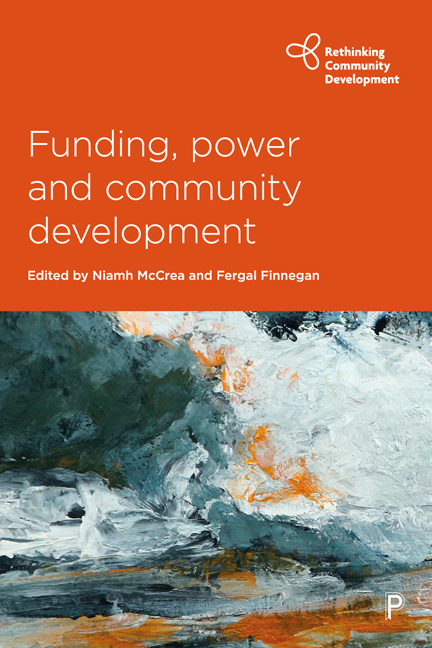Book contents
- Frontmatter
- Contents
- Series editors’ preface: Rethinking Community Development
- Acknowledgements
- Abbreviations
- Notes on contributors
- One Funding, power and community development: an introduction
- PART 1 New configurations of power and governance
- PART 2 Questions of state and grassroots democracy
- PART 3 Modes of agency and horizons of possibility
- Index
Eight - ‘It is time to reterritorialise utopian thinking’: community, the commons and the funding of autonomous movements in Latin America – an interview with Marcelo Lopes de Souza
Published online by Cambridge University Press: 19 April 2022
- Frontmatter
- Contents
- Series editors’ preface: Rethinking Community Development
- Acknowledgements
- Abbreviations
- Notes on contributors
- One Funding, power and community development: an introduction
- PART 1 New configurations of power and governance
- PART 2 Questions of state and grassroots democracy
- PART 3 Modes of agency and horizons of possibility
- Index
Summary
In this chapter, the editors interview Marcelo Lopes de Souza, a scholar who cooperates with social movements, and professor in the Department of Geography at the Federal University of Rio de Janeiro, Brazil. Drawing on the experiences of Latin American social movements, Marcelo discusses the implications of a commitment to radical autonomy for the funding of community-based movements and for emancipatory community development more broadly.
You are familiar with the way many English-speaking practitioners and researchers discuss community development. How is this similar or different from the sort of emancipatory community mobilisations that you have researched in Latin America?
First of all, let me say that ‘Latin America’ is a problematic expression as it was coined as a way to make claims to territory by European colonial and imperial powers, more specifically France under Napoleon III. To what extent are South America, Central America, the Caribbean and Mexico ‘Latin’? The vast majority of the population in the Andean countries, in Mexico and in many other countries are indígenas or mestizos whose mother tongues are in fact Aymara, Quechua, Mayan, Guarani and so on. That is the reason why the indigenous movements speak of Abya Yala instead of ‘Latin America.’ Sure, Latin America or Abya Yala is culturally, ethnically and linguistically highly heterogeneous. We have very ‘European’ countries such as Argentina and Uruguay, as well as complex, almost ‘unclassifiable’ countries such as Brazil. Having said that, despite this heterogeneity, two centuries of more or less common history and struggle at the ‘periphery’ of the capitalist world order has created a certain sense of ‘unity in diversity’. This has led to a fascinating exchange of ideas and experiences between communities, states and regions.
In the continent ‘community development’ is an expression that has historically been linked with politically and ideologically problematic phenomena, from an emancipatory point of view. In the 1950s, 1960s and 1970s it was widely used by governments and international institutions to foster, or impose, a view of ‘development’ that led to material and cultural dispossession and disempowerment. In general, it has been linked to a form of ‘socio-spatial engineering’ aimed at social control by the nation state.
- Type
- Chapter
- Information
- Funding, Power and Community Development , pp. 119 - 134Publisher: Bristol University PressPrint publication year: 2019



